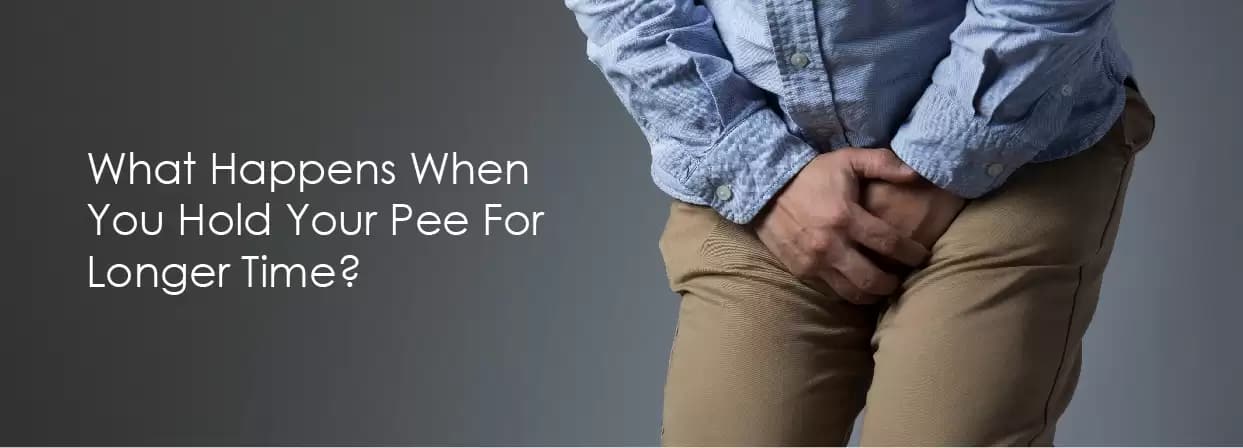
Be it a busy schedule or it’s difficult to access a restroom, it is natural for people to resist their urge to urinate sometimes.
Be it a busy schedule or it’s difficulty to access a restroom, it is natural for people to resist their urge to urinate sometimes. However, holding your urine on a daily basis is not advisable as it can cause several health issues. As per the best prostate specialist in Kolkata, there are no such rules as to how much pee is safe to hold and for how long? Some are more prone to the bad effects of holding pee. This may even affect your bladder, and prostate( for males) as well. Keep on reading to learn more.
The reason you feel the need to empty your bladder isn't as easy as your bladder filling up with liquid. It triggers the nerves in your bladder when it is about half full. These nerves send signals to your brain, causing you to feel the need to urinate. The brain then instructs the bladder to hold on till the moment comes. Holding your pee entails intentionally resisting the need to urinate.
These signals will differ from one person to the next. They also differ according to your age, the amount of fluid your bladder can hold, and the time of day.
These signals, for example, decrease at night, allowing you to obtain a full night's sleep rather than running to the lavatory every few hours!
Holding your pee is generally not dangerous if your urinary system is healthy. A healthy adult can hold almost 2 cups of urine at once. However, if this is retained for a longer time, it might create discomfort.
On the other hand, holding your pee can be an important element of bladder training if you have an overactive bladder. Regular bladder training may aid in the development of a more convenient toilet training schedule.
However, as suggested by a prostate specialist doctor in Kolkata, some people are at more risk of developing complications(UTI, kidney issues) after holding their urine for a longer duration.
Following are some of the potential side effects that may happen when you’re holding your pee for a longer time.
Many people assume that their bladder may burst if they hold their pee in for so long.
While a spontaneous urinary bladder rupture is possible, there is generally an underlying cause of the rupture, such as a blockage that prevents the bladder from voiding.
Staying hydrated all throughout the day is definitely good for our overall health. But consider healthy bladder habits when you can’t find an accessible washroom insight. This way you can avoid holding urine for a longer time and can keep all the risks associated with this at bay. For any guidance or consultation for the same, you can consult our prostate specialist doctor in Kolkata.
Written and Verified by:

Dr. Pankaj Kumar Gupta is a Consultant in Urology Dept. at CMRI, Kolkata with over 10 years of experience. He specializes in renal stone management, prostate & uro-oncology surgery, reconstructive urology including urethroplasty.
Similar Renal Sciences Blogs
Book Your Appointment TODAY
© 2024 CMRI Kolkata. All Rights Reserved.